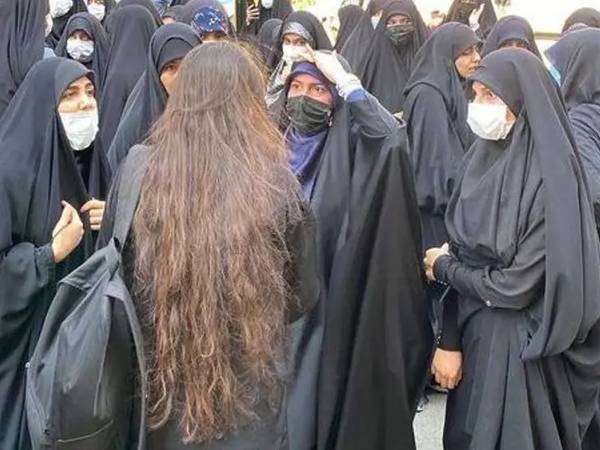The Iranian government said on Tuesday that the implementation of the controversial "Chastity and Hijab" law has been postponed due to the potential unrest it may spark.
Fatemeh Mohajerani, the spokeswoman for the administration of President Masoud Pezeshkian, said at a press conference: "Some clauses of the law could have had social consequences, and with these considerations and with wisdom, it was postponed."
She said that the law has been postponed twice.
The announcement comes despite repeated calls from hardliners for the law’s swift enforcement in a bid to combat the country's mass hijab rebellion in the wake of the 2022 Woman, Life, Freedom uprising.
In mid-December, Iran's vice-president for parliamentary affairs, Shahram Dabiri, announced that the administration is drafting a bill to amend the hijab law, which the Parliament Speaker Mohammad Bagher Ghalibaf had promised would take effect on December 13.
Fearing social unrest, Mohajerani said no alternative legislation regarding hijab is currently under consideration.
Expert work has begun within the Presidential Legal Department, but she indicated that formulating new legislation on the issue would be a lengthy process.
The government's delay in implementation suggests a recognition of the potential for further social unrest, particularly given the widespread protests that followed the death of Mahsa Amini in 2022 in the custody of Iran’s so-called morality police.
However, the pause is not reflective of any shift in the government's stance on the issue. "Iranian women have been chaste since ancient Iran," Mohajerani said.
The final text of the so-called "Support for Family through Promoting the Culture of Chastity and Hijab" law, published by Iranian media in December, has faced widespread criticism and protests.
In December, UN experts expressed their concerns about the law's implications in a statement in December.
Human Rights group Amnesty International also condemned the law, saying it would intensify the repression of women and girls and warning that Iranian authorities are attempting to solidify the existing system of oppression against women.
According to the US-based Human Rights Activists News Agency (HRANA), over 30,000 women in Iran faced legal action in 2024 for defying mandatory hijab.
